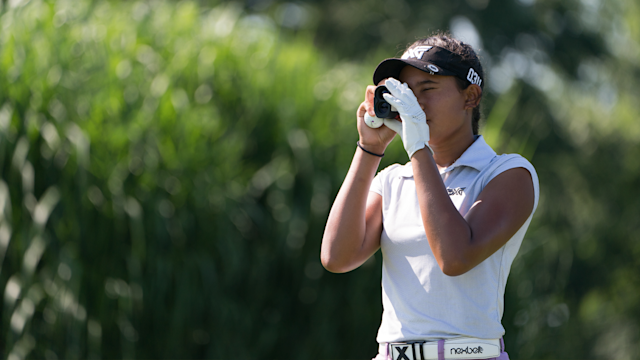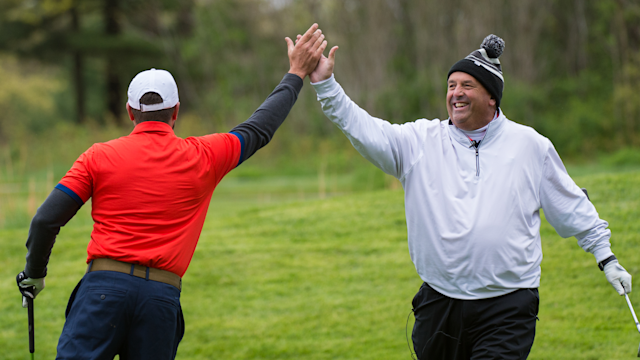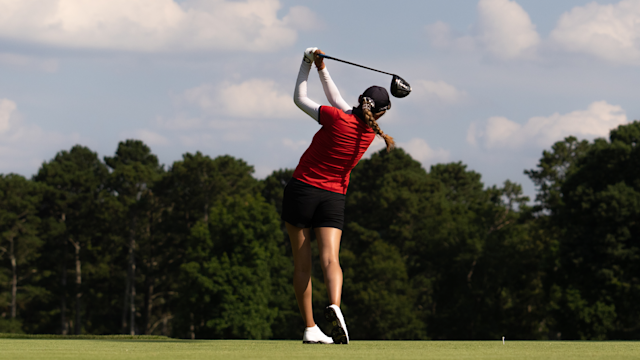quick coaching
Cheers to You! The Importance of Hydration in Golf
By Brendon Elliott, PGA
Published on

Haotong Li drinks water on the first hole during the third round of the 102nd PGA Championship at TPC Harding Park on August 8, 2020 in San Francisco, California.Darren Carroll/PGA of America
Among the many things that the best of the best in golf do versus what the rest of us don’t do, staying hydrated during the course of a round, or practice session is one of them. Some may think that the call for staying hydrated may be over hyped, but you simply can’t dispute the effects that becoming dehydrated have on the body…
Mild to Moderate Effects of Dehydration on the Body
- Decreases the body and the brain’s ability to function during a round of golf
- Decreases the ability to maintain the strength required to hit the ball
- Decreases the ability to maintain focus throughout the round
- General physical impairment including Fatigue, Dizziness, and Confusion
According to the Mayo Clinic, the most extreme effects of Dehydration on the body include:
Heat injury. If you don't drink enough fluids when you're exercising vigorously and perspiring heavily, you may end up with a heat injury, ranging in severity from mild heat cramps to heat exhaustion or potentially life-threatening heatstroke.
Urinary and kidney problems. Prolonged or repeated bouts of dehydration can cause urinary tract infections, kidney stones and even kidney failure.
Seizures. Electrolytes — such as potassium and sodium — help carry electrical signals from cell to cell. If your electrolytes are out of balance, the normal electrical messages can become mixed up, which can lead to involuntary muscle contractions and sometimes to a loss of consciousness.
Low blood volume shock (hypovolemic shock). This is one of the most serious, and sometimes life- threatening, complications of dehydration. It occurs when low blood volume causes a drop in blood pressure and a drop in the amount of oxygen in your body.
The idea is to continually replenish the fluids you loose from sweating while practicing or playing on the course. Water is considered by experts as the best thing to consume to accomplish this. Many golfers turn to sports or energy drinks which are high in sugar and/or caffeine. While its true, that you should be concerned about replenishing electrolytes (particularly sodium, potassium, calcium, and magnesium), and turning to a sports drink seems reasonable, make sure to check the label to see the sugar content. A better option, to give you a needed boost of energy, beyond the water, is to carry snacks with you such as fruit, trail mix, granola bars, or even a chicken or peanut butter sandwich.
Golf and beer go hand and hand, however, over consumption of alcohol can lead to Dehydration. If you like to have an adult beverage or two while playing, by all means, do so, but remember to also carry with you some bottled water. Drinking the bottled water, in between beers, will help in keeping you hydrated.


